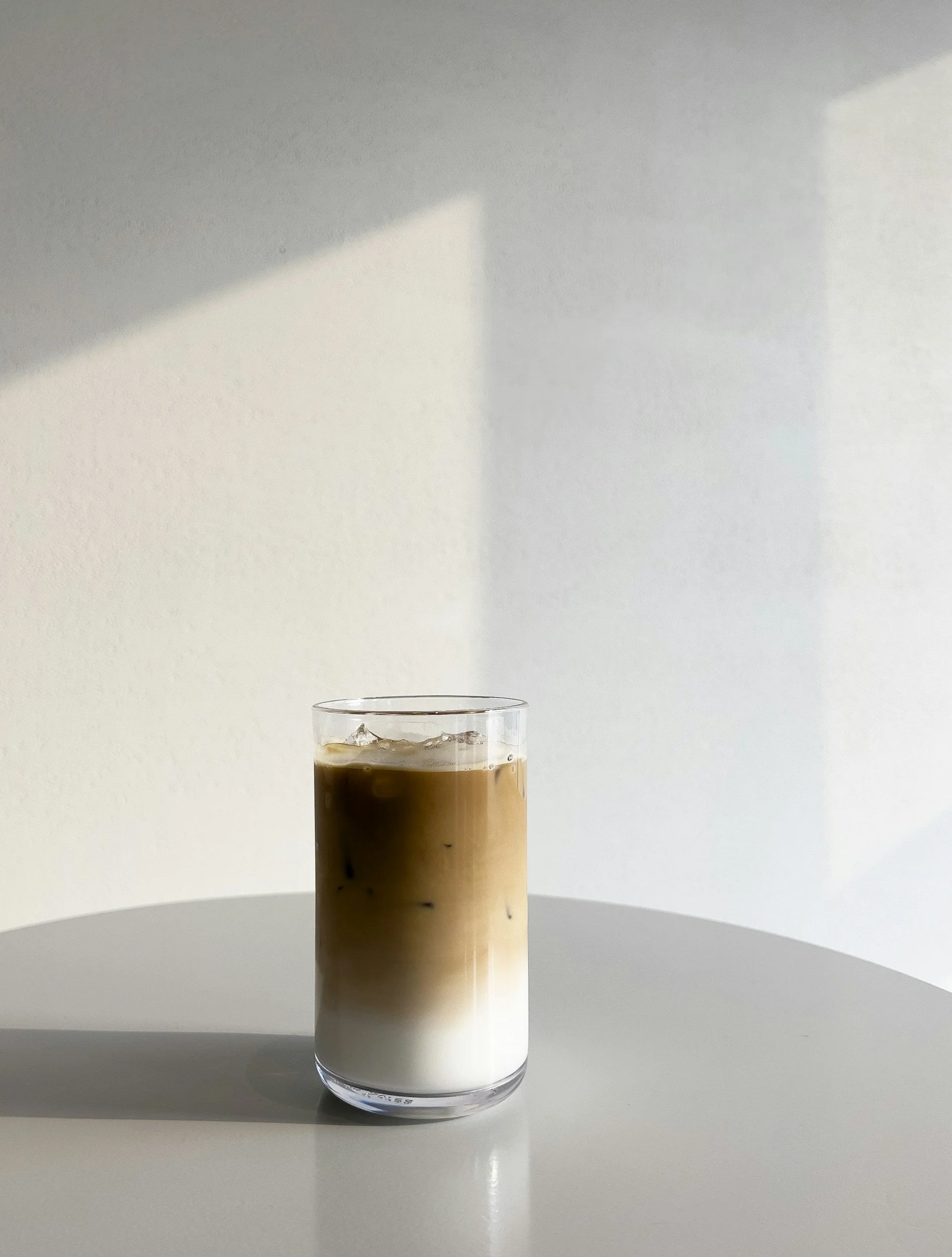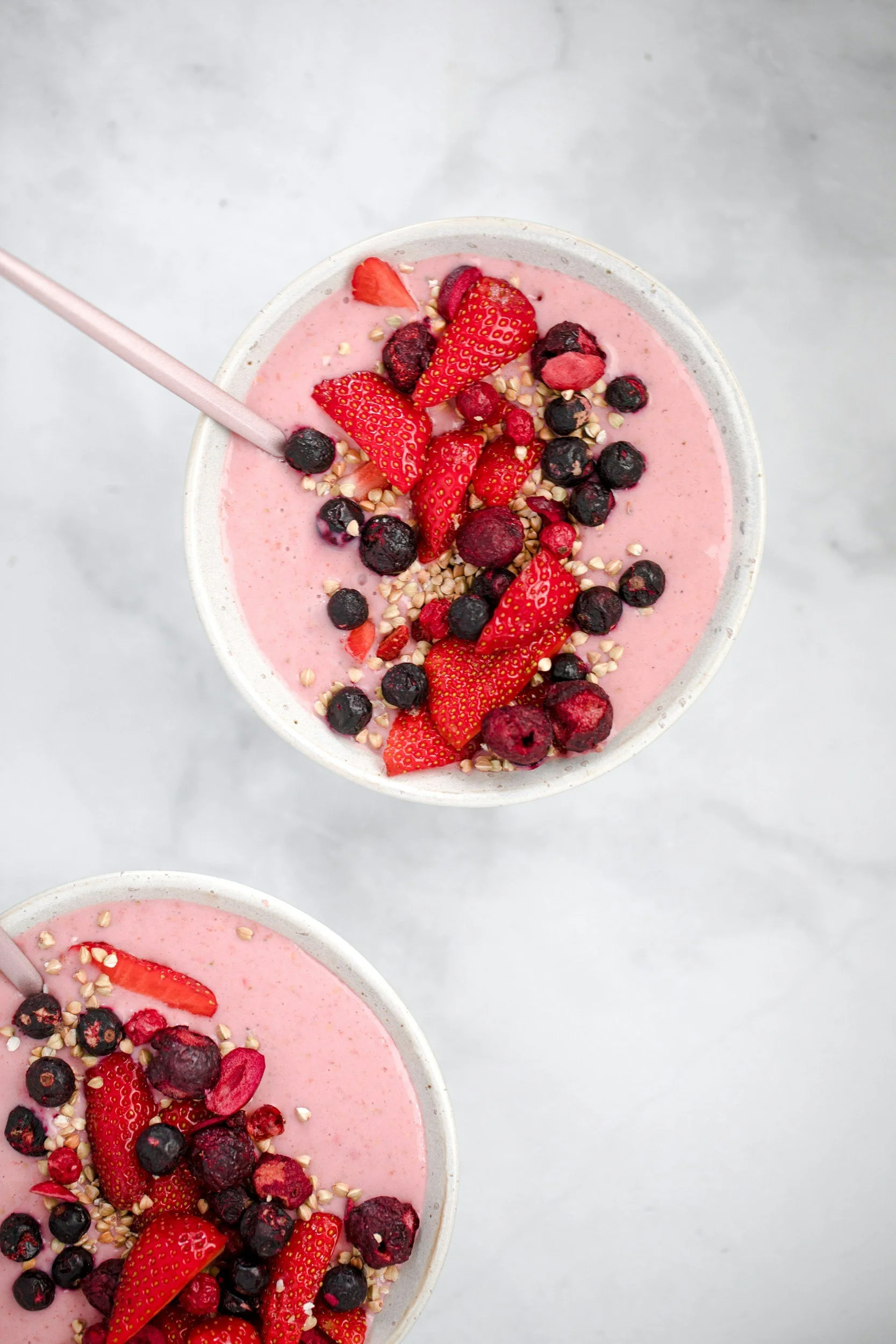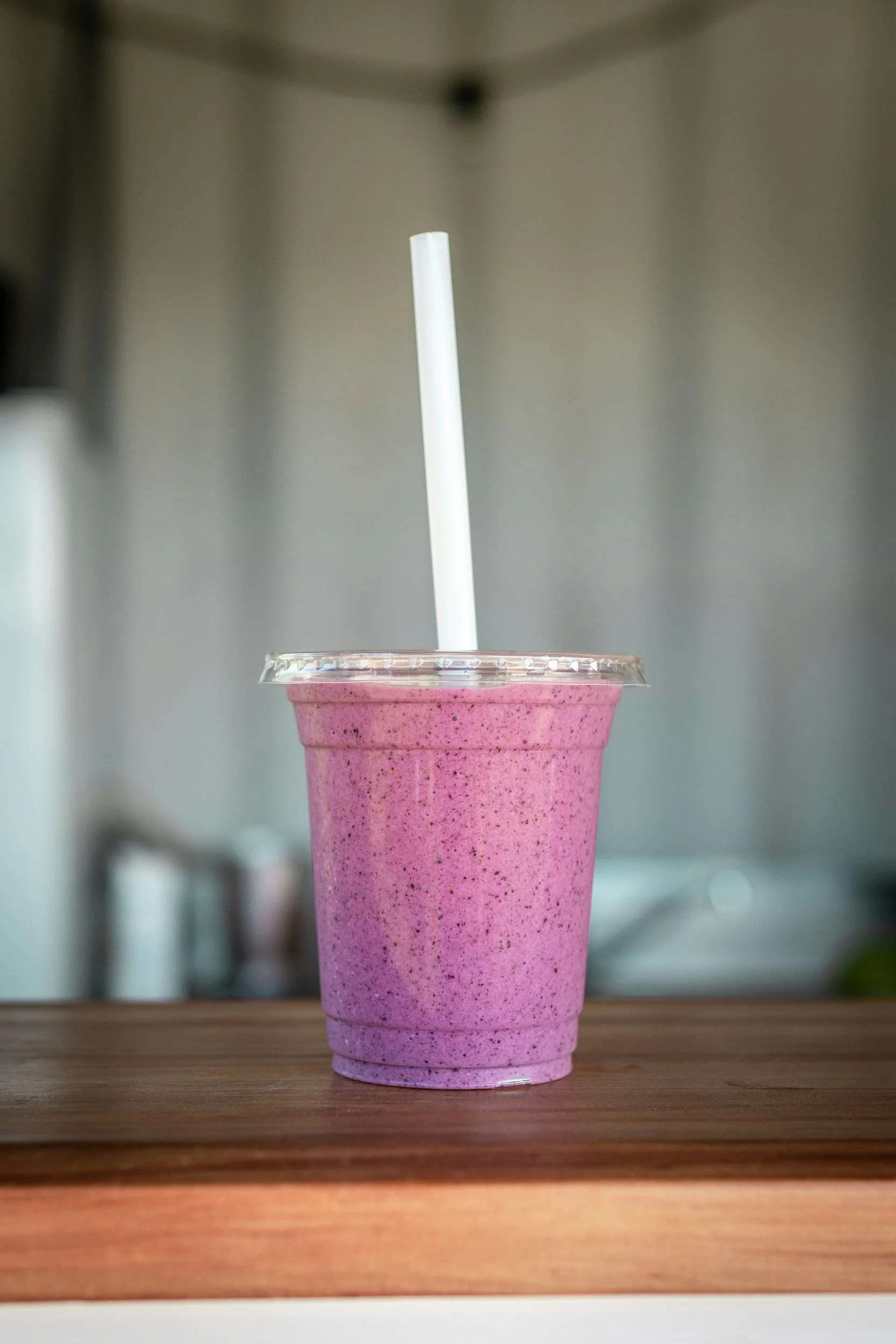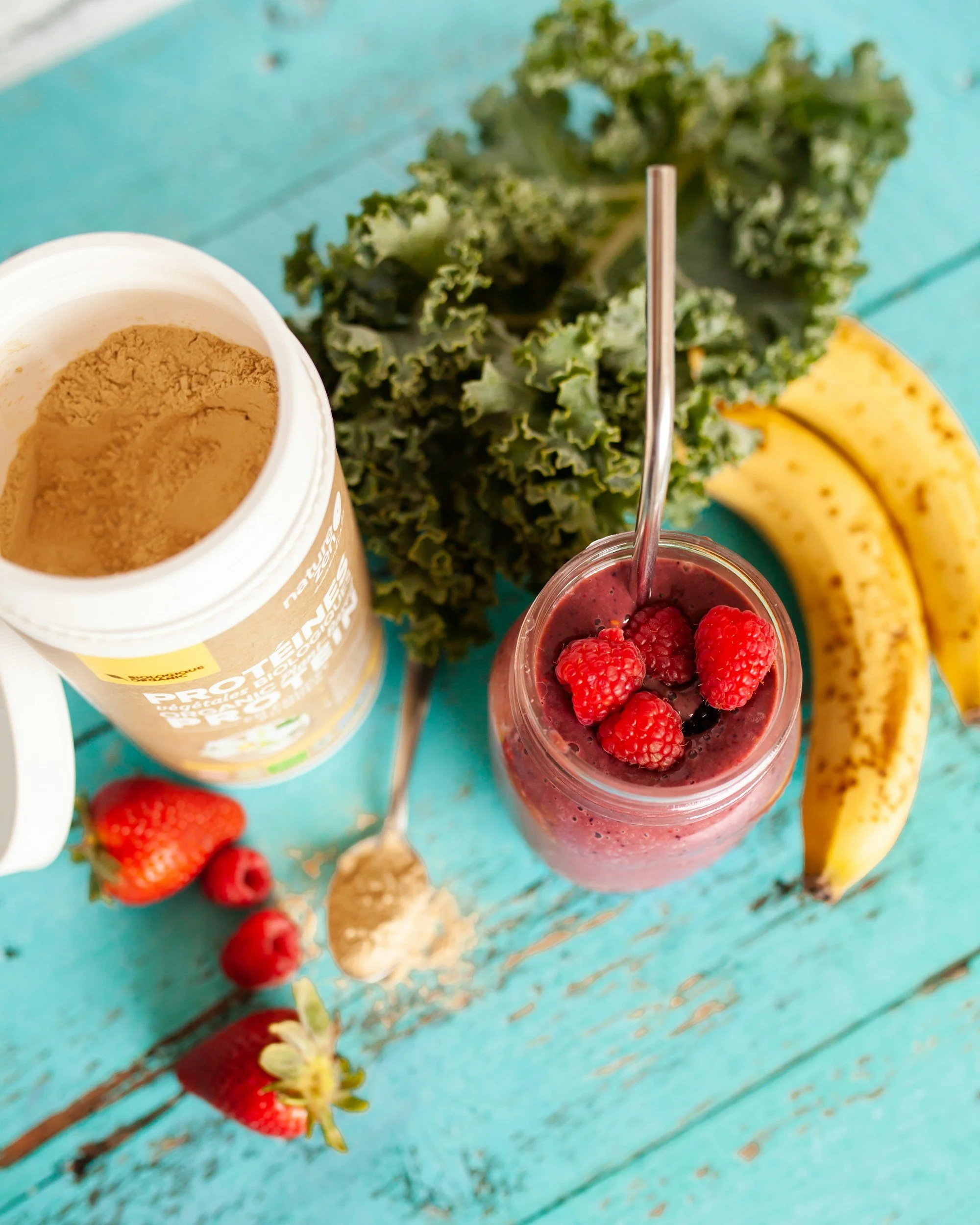Glow From The Inside Out: 6 Supplements for Healthy Skin
/When it comes to healthy, glowing skin, what we put into our bodies matters just as much as what we put on them. Who doesn’t want vibrant, youthful-looking skin? While most of us know that nutrition plays a role, the details often feel overwhelming—what does “eating for skin health” actually mean, and how do we put it into practice?
That’s where supplements can be a powerful ally. Alongside a balanced diet, the right nutrients work at a deeper level to support collagen production, reduce inflammation, and improve elasticity and hydration. But supplements don’t work in isolation—your daily habits make a huge difference in how effective they are.
One of the most overlooked foundations for skin health is hydration. Your skin is the largest organ in your body, and staying hydrated not only helps it look plump and radiant but also improves how well your body absorbs and uses the nutrients from supplements. Simply put, water makes everything work better—both inside and out.
Tips to Prep for Glowing Skin from the Inside Out
To maximize the benefits of your skin-health supplements, start with these simple habits:
Prioritize Hydration – Aim for at least half your body weight in ounces of water daily, and add electrolytes if you’re active or in hot climates.
Eat Whole Foods First – A nutrient-dense diet full of colorful fruits, vegetables, lean proteins, and healthy fats creates the foundation that supplements can build on.
Balance Blood Sugar – Stabilizing blood sugar helps reduce inflammation, which is directly linked to acne, dullness, and premature aging.
Support Gut Health – A healthy gut means better absorption of vitamins, minerals, and antioxidants that your skin needs.
Be Consistent – Supplements aren’t a quick fix. It takes time for your body to build nutrient levels, so daily consistency is key.
Common Mistakes That Sabotage Skin Health
Even with the best supplements, these slip-ups can keep you from seeing results:
Relying Only on Creams and Serums – Topical products help, but they can’t replace nutrition and hydration from the inside.
Skipping Water – Dehydration leaves skin looking dull and dry and reduces the impact of supplements.
Inconsistent Use – Taking supplements here and there won’t give your body enough time to show results.
Overloading on Processed Foods – Sugar and processed oils fuel inflammation, undoing much of the good your supplements provide.
In the next section, we’ll dive into the six best supplements for skin health—nutrients that go beyond the surface to help you glow from within.
6 Supplements for Skin Health
According to Kathi Head, ND from Thorne, these are some of the best supplements for skin health.
1. Collagen peptides
Enhance the health of skin, hair, and nails*
Promote skin hydration*
Maintain elasticity and strength of the skin*
Several studies show that collagen peptides are effective for promoting skin health.
A 2021 review compiled data from 19 studies on collagen and skin health. With more than 1,100 participants (ages 20-70), the authors concluded that supplementation with collagen peptides for 90 days improved skin hydration, elasticity, and wrinkles.1
Thorne’s Collagen Plus combines collagen with supportive nutrients and botanicals to provide comprehensive skin support.*
Collagen peptides are rich in the amino acids that nourish skin, hair, and nails.
Japanese white peach contains natural ceramides – which make up more than half of the outer layer of skin. A study of HydroPeach® – an extract of Japanese white peach containing 3% ceramides – found 20-30% less water loss in the skin and improved skin texture after 20 days.2 This addition of HydroPeach makes Collagen Plus an essential supplement for dry skin.*
A study of redcurrant/blackcurrant extract as the patented MitoHeal® found it improved wrinkle severity, skin coarseness, brown spots, and hair and nail quality in women ages 22-55.3 In a placebo-controlled trial of 40 adults (average age 45), MitoHeal resulted in self-reported improvement in skin quality as well as improvement based on expert assessment of before and after photos.4
Supplementation results might be visible in as soon as four weeks.*
2. Biotin
Biotin deficiency is associated with hair loss and scaly skin.
Biotin supplementation can improve brittle nails.*
Biotin-dependent carboxylase enzymes are necessary to metabolize fatty acids and support healthy skin.*
Several studies conclude that biotin improves fingernail strength.
In one clinical trial, 45 individuals with brittle fingernails were given 2.5 mg of biotin daily for up to seven months. Of the participants, 91% showed “definite improvement,” exhibiting firmer and harder nails after an average of 5.5 months.5 A Swiss study found a 25% increase in nail plate thickness in 22 of 35 individuals taking biotin.6
NOTICE: Evidence indicates that biotin can interfere with the results of some laboratory tests. If you are supplementing with biotin, then be sure to talk to your health-care practitioner prior to having your blood drawn for the laboratory test at issue.
3. Omega-3 and omega-6 essential fatty acids (EFAs)
Omega-3 fatty acids support optimal skin hydration.*
EPA and DHA help maintain a healthy balance of cytokines in the skin.*
Omega-3s can provide protection from damaging effects of the sun.*
Omega -3 fatty acids are among the essential supplements for dry skin. EPA and DHA improve the balance of inflammatory eicosanoids in the skin.*
Supplementation of 79 females for 12 weeks with EPA derived from fish oil shifted the balance of eicosanoids in the skin toward a less inflammatory species and protected the skin from the effects of UV exposure.7 Omega-3 fatty acids appear to protect the skin from the harmful effects of UV radiation via several mechanisms of action.*8
4. Oligomeric proanthocyanadins (OPCs)
OPCs stabilize the cross-linkage of collagen in skin and connective tissue.*
OPCs decrease capillary permeability, which decreases bruising and “spider veins.”*
OPCs block the enzymes – elastase, collagenase, and hyaluronidase – that degrade connective tissue.*
OPCs help protect the skin from the damaging effects of air pollution and exposure to the sun.*
OPCs, found naturally in grape seed and skin, as well as French maritime pine bark (Pycnogenol®), apples, strawberries, blueberries, and chocolate, are high in antioxidant activity that can help mitigate the damaging effects of UV exposure.*
In a study of 21 healthy individuals, the shortest exposure to UV light that would produce a reddening of the skin was tested before exposure and after four weeks of daily OPC supplementation of 1.10 mg of OPCs per kg of body weight, and again after four weeks of daily OPC supplementation of 1.66 mg of OPCs per kg of body. OPCs significantly increased the exposure time that produced a reddening of the skin in a dose-dependent manner; i.e., the higher dose resulted in nearly doubling the exposure time needed for UV exposure to produce a reddening of the skin. The mechanism of action is believed to be inhibition of the protein complex known as nuclear factor-kappaB.9
Thorne’s Grape Seed Extract contains grape seed phytosome, which possesses significant antioxidant capacity.* An important mechanism of antioxidants is their ability to minimize free radical damage to the skin. In one study, 20 young-adult volunteers were given 300 mg of grape seed phytosome (Leucoselect® Phytosome; 95% OPCs) or a placebo daily for five days and then after a two-week washout period were crossed over to the other treatment. Total antioxidant capacity was significantly increased in the group after supplementation of the grape seed phytosome compared to the placebo.10
5. Vitamin C
Vitamin C (ascorbic acid) is essential for promoting a stable level of collagen.*
Bioflavonoids enhance the cross-linkage of collagen.*
Vitamin C and bioflavonoids provide antioxidant support that protects against free radical damage to the skin.*
One of the best vitamins for skin health is vitamin C, an essential antioxidant and collagen-supportive nutrient that helps protect the body from the effects of aging.*
Its antioxidant effects and role in collagen synthesis clearly designate vitamin C as an essential vitamin for skin health. Although vitamin C is found in high concentrations in both the dermis and epidermis, its level does decline with age.11 Exposure to UV light and environmental pollutants can also result in decline of vitamin C levels.12 Data from the U.S. National Health and Nutrition Examination Survey (NHANES) of more than 4,000 women, ages 40-79, identified those with the highest levels of vitamin C intake as being the least likely to have wrinkled or dry skin.13
6. Zinc
Zinc is essential for optimal skin repair after injuries.*
A deficiency of zinc can manifest as dry and rough skin.
Zinc is necessary for a healthy immune function, including in the skin.*
Read the full article with resources here: https://s.thorne.com/4oRw2
Tips for Getting Started with Skin Health
Remember, you don’t need to overhaul everything at once. Building healthy, glowing skin is about small, consistent steps:
Start Small – Instead of buying every supplement you see, begin with one that aligns with your goals (like collagen, omega-3s, or a multivitamin) and see how your body responds.
Hydrate First – Make water your first line of defense. Aim for consistent daily hydration before adding anything new.
Focus on Food – Whole, unprocessed foods rich in antioxidants, healthy fats, and lean protein form the foundation of great skin health.
Cut Back on Sugar – Excess sugar contributes to inflammation and collagen breakdown—two major roadblocks to radiant skin.
Build Gradually – Once you’ve mastered hydration and nutrition basics, layering in the right supplements will be much more effective.





















